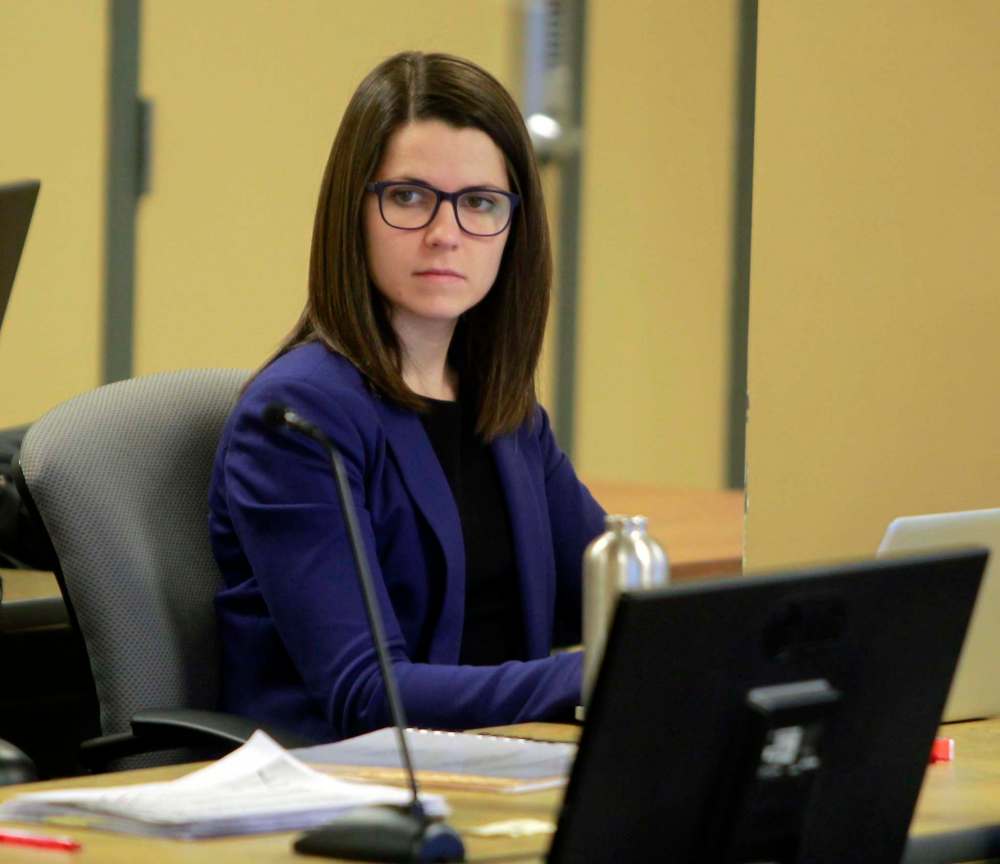Consumer advocates say telcos taking advantage of most vulnerable
Advertisement
Read this article for free:
or
Already have an account? Log in here »
To continue reading, please subscribe:
Monthly Digital Subscription
$0 for the first 4 weeks*
- Enjoy unlimited reading on winnipegfreepress.com
- Read the E-Edition, our digital replica newspaper
- Access News Break, our award-winning app
- Play interactive puzzles
*No charge for 4 weeks then price increases to the regular rate of $19.95 plus GST every four weeks. Offer available to new and qualified returning subscribers only. Cancel any time.
Monthly Digital Subscription
$4.99/week*
- Enjoy unlimited reading on winnipegfreepress.com
- Read the E-Edition, our digital replica newspaper
- Access News Break, our award-winning app
- Play interactive puzzles
*Billed as $19.95 plus GST every four weeks. Cancel any time.
To continue reading, please subscribe:
Add Free Press access to your Brandon Sun subscription for only an additional
$1 for the first 4 weeks*
*Your next subscription payment will increase by $1.00 and you will be charged $16.99 plus GST for four weeks. After four weeks, your payment will increase to $23.99 plus GST every four weeks.
Read unlimited articles for free today:
or
Already have an account? Log in here »
Hey there, time traveller!
This article was published 23/10/2018 (2632 days ago), so information in it may no longer be current.
OTTAWA — Winnipeg anti-poverty groups say Canada’s telcos are ripping off the most vulnerable Manitobans.
“They find it more difficult, and they pay more, for […] a necessity,” Gloria Desorcy, Manitoba head of the Consumers’ Association of Canada told the industry’s federal regulator Tuesday.
The Canadian Radio-television and Telecommunications Commission is holding hearings this week on “misleading or aggressive sales practices” by Canada’s large telecommunications carriers.

Consumer advocates are airing complaints about how companies like Bell, Shaw, Rogers and Telus advertise their products, solicit customers and charge them for services. That’s led so some unflattering testimony.
”When a customer is duped into a sale, there are usually significant early-cancellation costs that deter customers from leaving, and this does not hurt the former company,” said Jennifer Chow of the Fair Communications Sales Coalition.
That national group is among the advocates calling on Ottawa to implement a code of conduct similar to other Western countries, that compels clear contracts and more favourable cancellation terms.
Winnipeg’s Public Interest Law Centre raised similar demands in hearings just outside Ottawa.
“Access to telecommunications productions is essential to meaningful participation in society,” said group lawyer Katrine Dilay, who spoke on behalf of a local coalition that includes Winnipeg Harvest.
She said a heavily concentrated telco market lets companies come up with terms that lock out lower-income and immigrant users, and can leave customers with contracts that don’t match up with advertised prices.
A poll of one thousand Manitobans this year by Prairie Research Associates, weighed for demographics, revealed 45 per cent had received unexpected charges on their bills, an issue that 59 per cent of twenty-somethings experienced.
A quarter of all respondents felt pressure to accept resolutions to complaints that they thought were unfair, and a fifth had terms changed without notice, and just as many felt pressure from upselling staff.
Seven in 10 respondents say they use bundled services, and Dilay said that has made it complicated for consumers to find the best deal.
Desorcy testified that multiple newcomers in Canada have complained about the best deals being out of reach, because they require a credit history which many haven’t established in Canada.
She noted that hydro, water and other utilities are provided first in Manitoba and billed later, without a credit check. “So if we are saying that access to communication services is a need, then it doesn’t seem appropriate that the credit history come into it.”
Dilay and Desorcy suggested federal regulators impose escalating fines on companies that don’t change their behaviour, and publish that information publicly.
In submissions, large telcos told the regulator that they’re trying to make their terms and offerings clearer to customers, but Dilay said those hardly cut the mustard. Dilay slammed “their refusal, on the record of these proceedings, to acknowledge there is a systemic problem.”
Desorcy said researchers don’t yet know the impact of Bell’s 2017 takeover of MTS on consumer prices and services.
The CRTC will report to the federal Cabinet by the end of February.
With files from The Canadian Press
dylan.robertson@freepress.mb.ca

